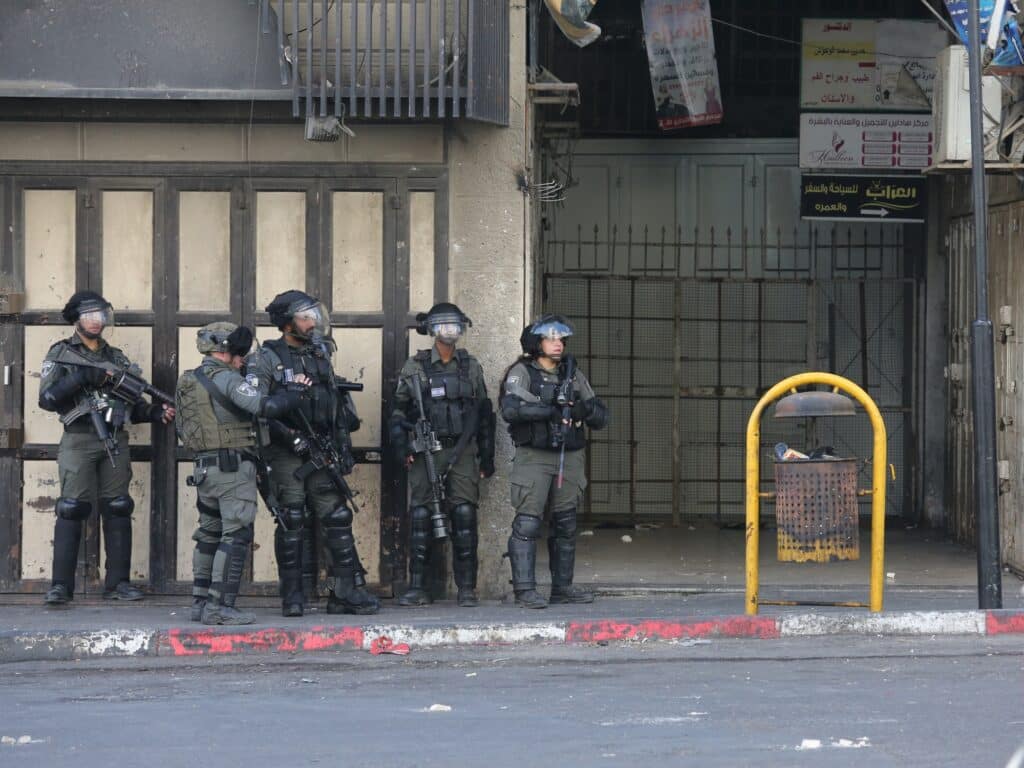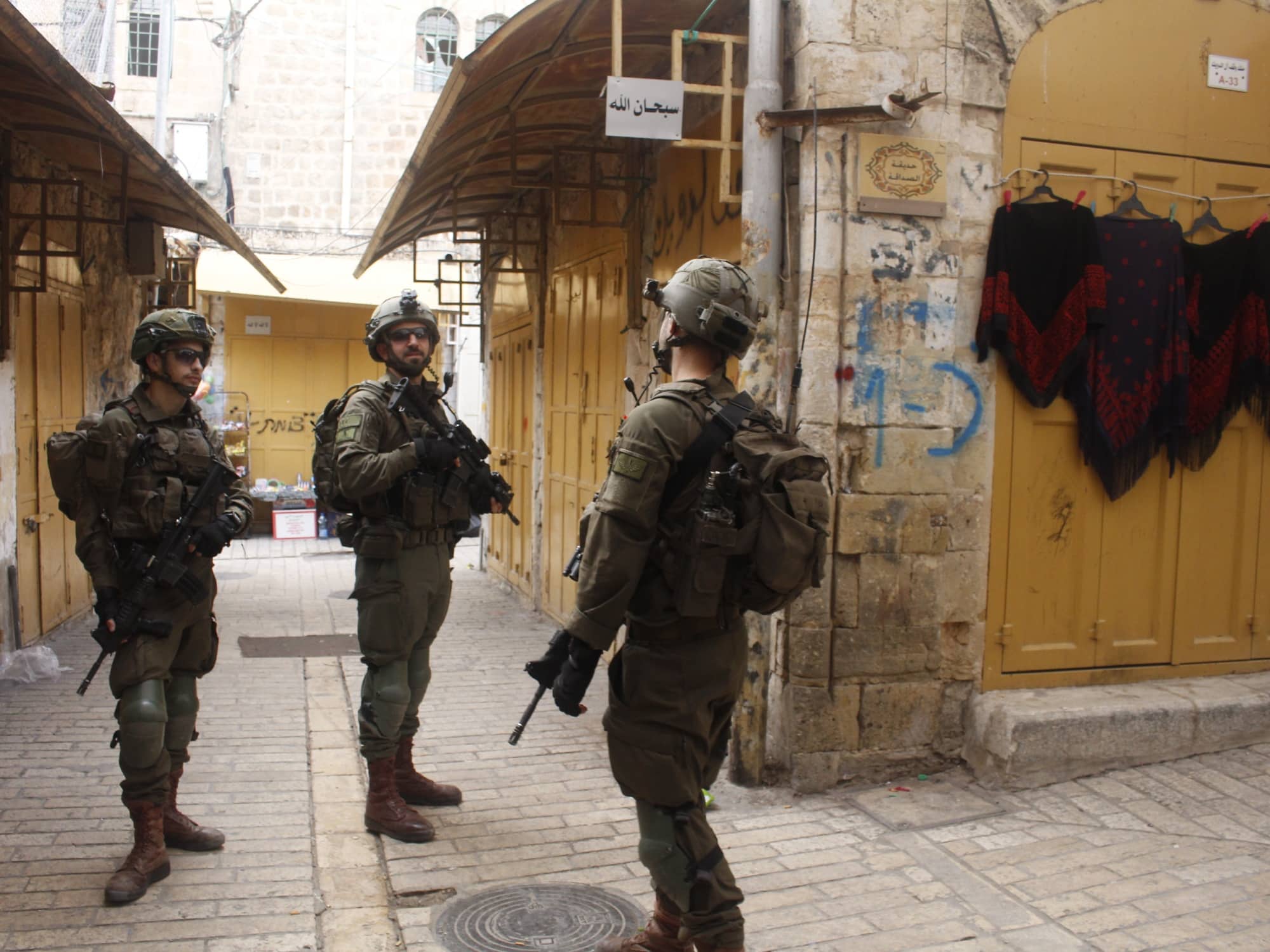The chained holy site
I carry an American passport, and I entered legally – granted a three-month tourist visa – to “Israel”. As a Muslim, the first thing I did after I entered was to visit Al-Aqsa Mosque, the third-holiest site in Islam. I wear a hijab, a visible marker of my faith.
The Haram al-Sharif compound – encompassing Al-Aqsa Mosque and the Marwani Mosque – is surrounded by twelve gates, though several are closed to Muslims. All gates are illegally under Israeli control, guarded by soldiers. When I reached the Old City, I asked for the nearest entrance and was directed to one. As I approached, an Israeli soldier stopped me, demanding my ID. I handed him my American passport. He eyed me with disgust.
“Are you American?” he snapped.
“Yes,” I replied. He held my passport and the Israeli visa issued just an hour earlier.
“Where’s your West Bank ID?” he demanded.
Confused, I said, “I don’t have one.”
He sneered. “Are you sure?”
“Of course!”
A female soldier intervened, asking where in the US I was from. I answered, and after a brief exchange in Hebrew, they let me pass. The crowd at the gate was thick. Perhaps she assumed I was a white American convert. They already had enough Arabs to torment.
A boy denied prayer
Once during Ramadan, I tried to enter Haram al-Sharif when a young Palestinian boy, no older than sixteen, stood ahead of me. He held out his ID but forgot to remove his backpack for inspection. Before he could react, a soldier shoved him, punched his shoulder, and screamed obscenities. The boy froze. I stood shocked—even the other soldiers seemed stunned. The soldier barked that the boy wouldn’t enter, wouldn’t pray, and shouldn’t dare try another gate. There was no reason. Only domination.

Denied for saying “Palestine”
Another time, I attempted to enter Al-Aqsa for Friday prayers. A soldier stopped me, demanding my ID. I handed him my passport and visa, explaining I had no West Bank ID.
“Where are you originally from?” he asked.
“I was born in Kuwait,” I said, gesturing to my passport in his hand.
“And your parents?”
“Palestinian.”
His face hardened. “Where in Palestine?”
“Nazareth.”
“That’s Israel, not Palestine,” he spat, shoving my passport back. “Go home. No prayer for you today.” No explanation. Just punishment for claiming my heritage.
I turned away, walking through the scorching Old City toward the bus station. Moments later, I heard shouting—the same soldier, sprinting after me, ordering me to take the long route outside the walls, where there was no shade, only a steep, sunbaked hill. His rage was palpable.
Dawn prayer, denied again
Weeks later, I booked a room in the Old City for easier access to the mosque. One morning, I woke at 3:30 AM, showered, and walked to Fajr prayer. At the gate, I saw two South African women being turned away. Still, I approached, passport in hand. Without even looking, the soldier waved me off.
“I just want to pray,” I said.
“NO!” he shouted.
This is how Israeli soldiers treat Muslim worshippers: with humiliation, arbitrary bans, and the cruel denial of a basic right—prayer in a holy site they have no right to control.
Living while Palestinian: the crime of existence
He is sixteen, a tenth-grade student. His only crime is being Palestinian.
At the end of another exhausting school day, he left for home as usual. His school is in Aroob camp, where he lives with his family. As he neared home, he spotted an Israeli Occupation Forces (IOF) jeep surrounded by six soldiers. His eyes locked with one soldier, then, before he could react, a shot rang out. A searing pain tore through his arm.
He ducked for cover, bleeding heavily. As he crawled desperately away, a second bullet struck his stomach. Nearby men saw him crumple and dragged him to safety while soldiers continued their grim game, treating Palestinians as target practice.
Miraculously, he reached a hospital. Emergency surgery saved his life, but recovery meant over two months bedridden. He lost an entire school year, another casualty of occupation.
Read “I felt the Privilege” by CPT Palestine’s Shahd Al Junaidi.




